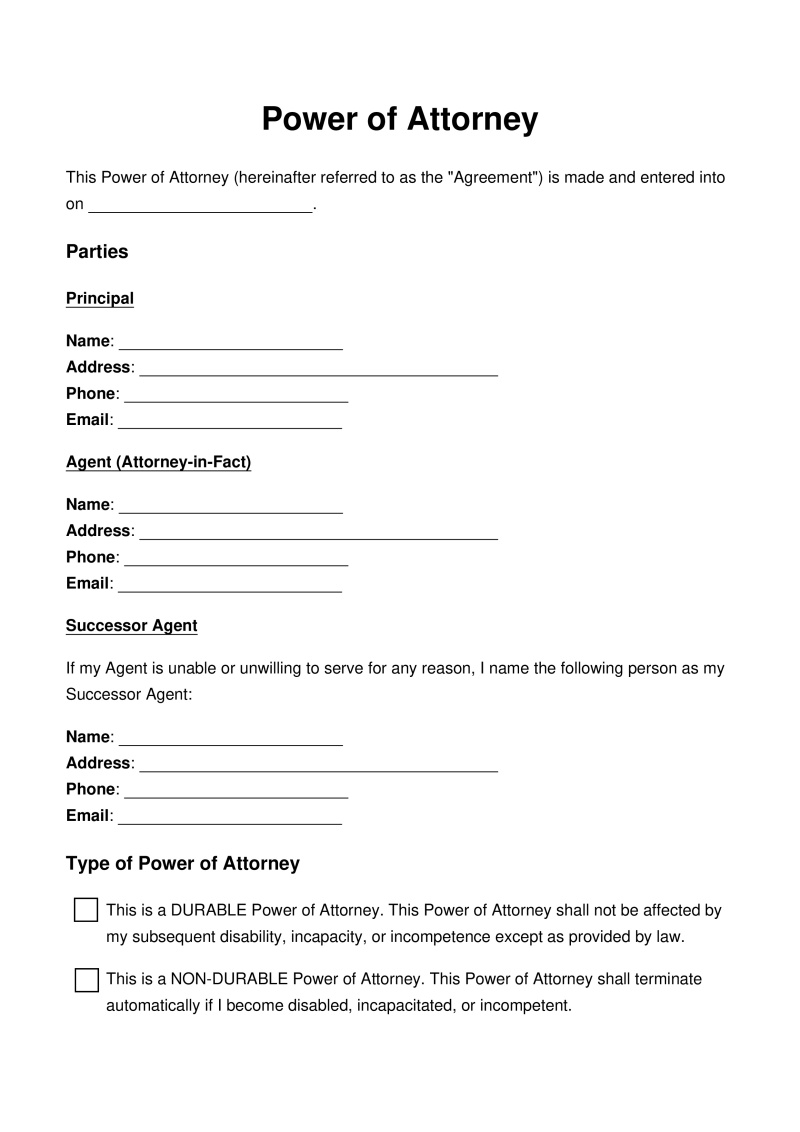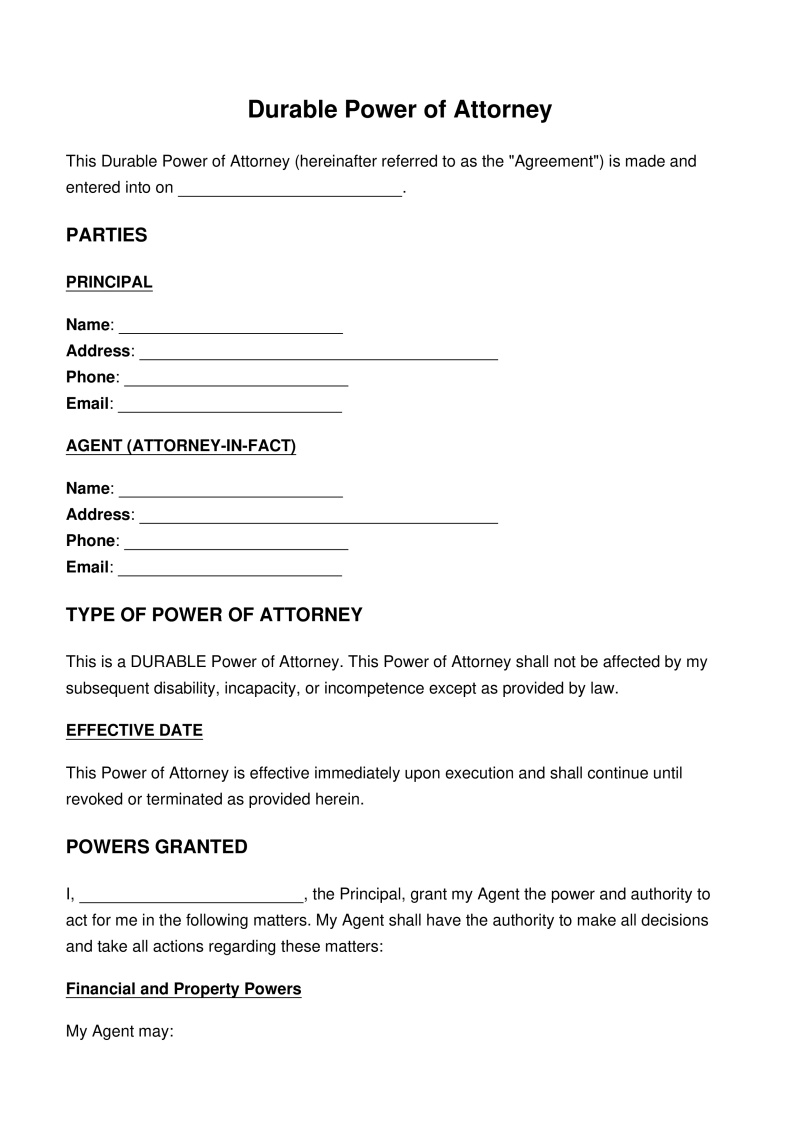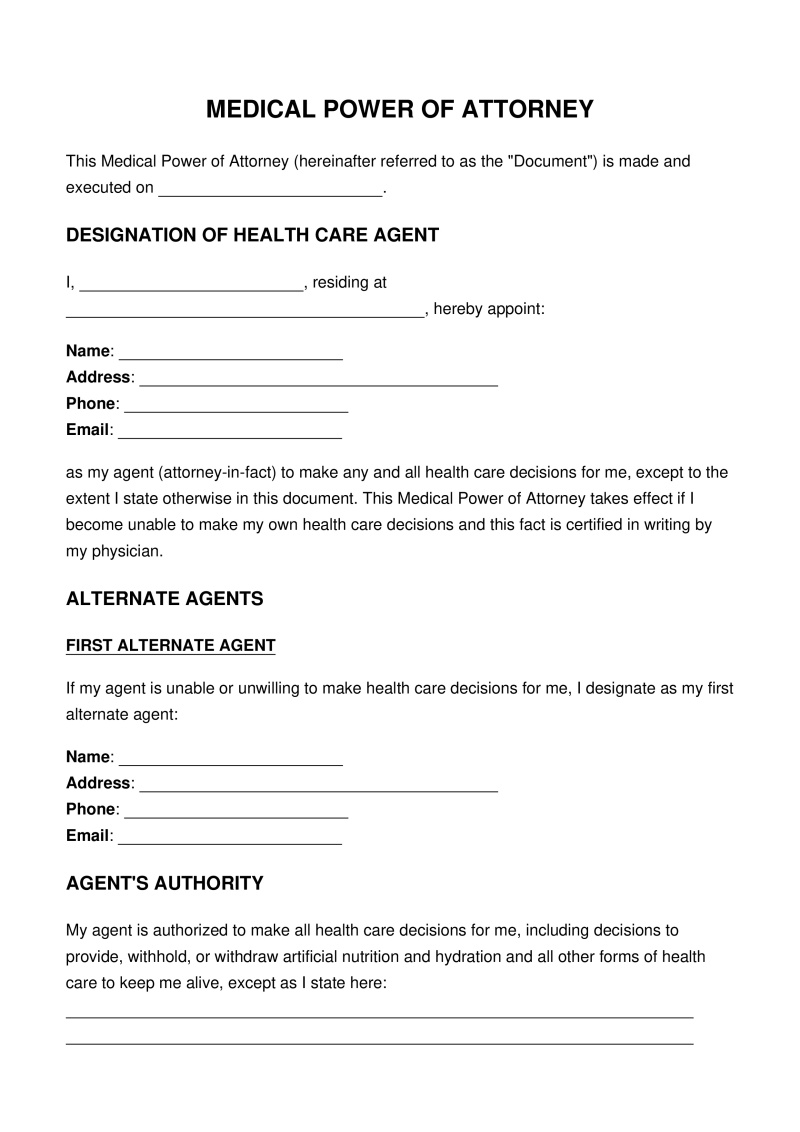Power of Attorney

About this document
A power of attorney is a document that allows someone to choose another person to make legal decisions on their behalf.
By Type
What is a Power of Attorney?
Used to legally authorize an individual (the agent or attorney-in-fact) the authority to act on behalf of another person in various matters, typically involving financial or legal decisions. Often, a client will sign a power of attorney over to their lawyer to let them sign documents on their behalf. A POA may be terminated under specific circumstances outlined in the document or governed by local laws.
- Scope of Authority - Defines the specific actions or decisions the agent is authorized to make on behalf of the principal.
- Durable vs. Non-Durable - Determines whether the POA remains valid if the principal becomes incapacitated.
- Termination Conditions - Specifies when the POA ends (e.g., upon revocation, death, or the principal’s regained capacity).
How to Get a Power of Attorney
- Determine the type of Power of Attorney (POA) needed—medical, financial, durable, or limited—based on specific circumstances and requirements.
- Obtain the appropriate legal form from an attorney, legal aid organization, state agency website, or reputable online legal service.
- Complete the form with specific details about the powers granted, limitations, and the designated agent (attorney-in-fact).
- Ensure the principal (person granting authority) signs the document while mentally competent.
- Have the signature notarized, as required in most jurisdictions; some states also require witnesses to the signing.
- File the document with the appropriate county office if required by state law, particularly for POAs involving real estate transactions.
- Distribute copies to all relevant parties, including the designated agent, financial institutions, healthcare providers, and family members.
FAQs
The Principal: The person who created the POA can revoke it at any time as long as they remain mentally competent.
Courts: Judicial authorities have the power to override, modify, or terminate a POA if:
- Evidence shows the agent is acting improperly.
- The agent is abusing their authority.
- The principal has become incapacitated and the POA arrangement is causing harm.
Healthcare Professionals: Medical providers may temporarily override healthcare POAs in emergency situations.
Family Members: In some jurisdictions, relatives can petition courts to invalidate a POA if they can demonstrate:
- Agent misconduct.
- The principal was incompetent when creating the document.
- The principal was under undue influence when creating the document.
The 4 Types of Power of Attorney
General: Grants broad authority to the agent to handle nearly all legal and financial matters on the principal's behalf. This type becomes invalid if the principal becomes incapacitated unless specifically made durable.
Limited (or Special): Restricts the agent's authority to specific tasks, transactions, or time periods. For example, it might only authorize the agent to sell a particular piece of property or manage affairs while the principal is traveling abroad.
Durable: Remains in effect even if the principal becomes mentally incapacitated. This type specifically includes language stating it "survives incapacity" and is particularly important for long-term planning and elder care situations.
Medical (or Healthcare): Specifically authorizes the agent to make healthcare decisions on the principal's behalf if they become unable to communicate their wishes. This is often accompanied by an advance healthcare directive or living will that outlines the principal's medical preferences.
Discussion
1 commentComments and opinions expressed by users on this website are for informational purposes only and do not constitute legal advice. They reflect the personal views of the commenters and should not be relied upon as a substitute for professional legal counsel. Always consult a qualified attorney for advice specific to your situation.


Comments (1)
Leave a Comment
Caroline Brin
2 weeks ago
Very straightforward and easy to use. It covered all the key areas and made assigning power of attorney much simpler. Definitely a helpful template—thanks!